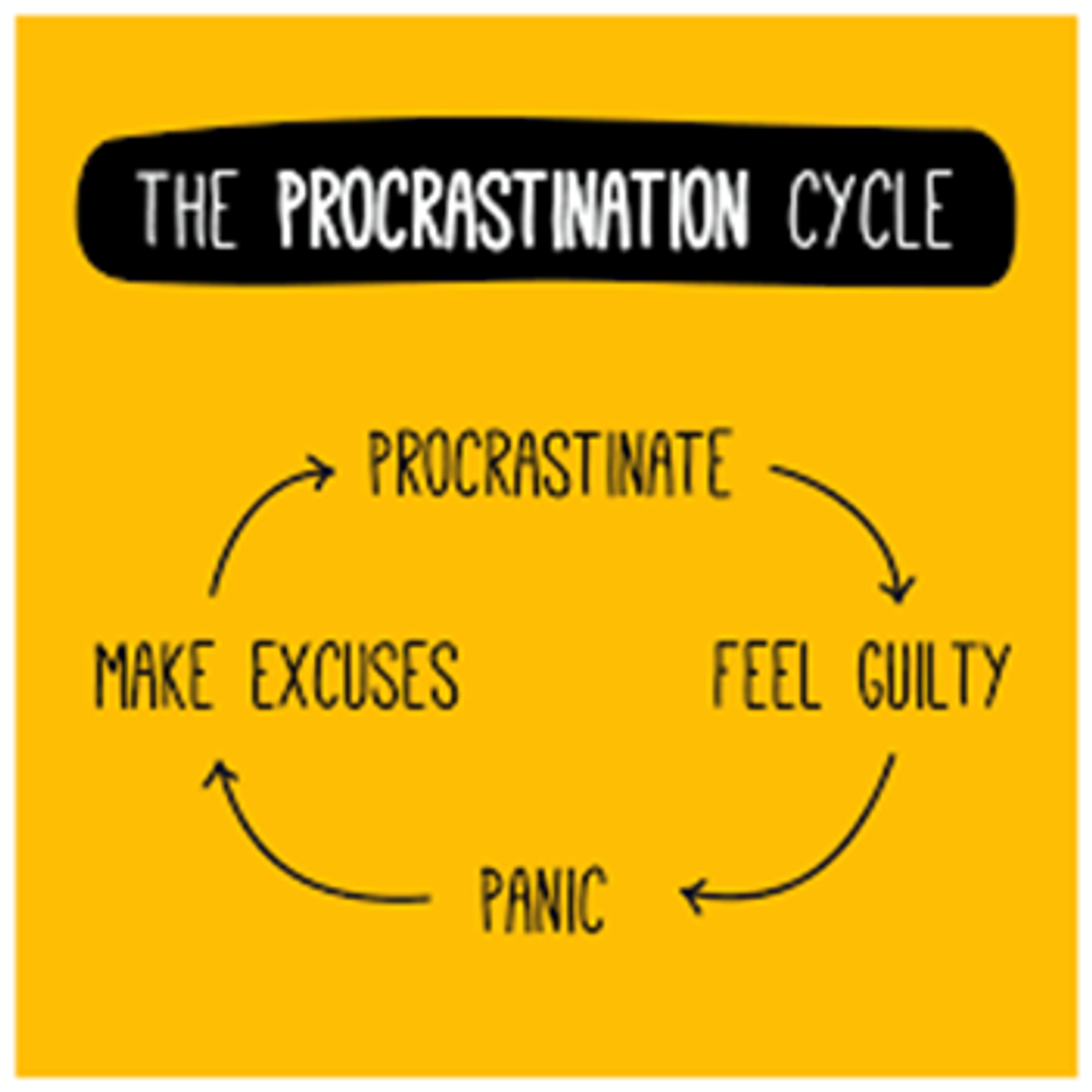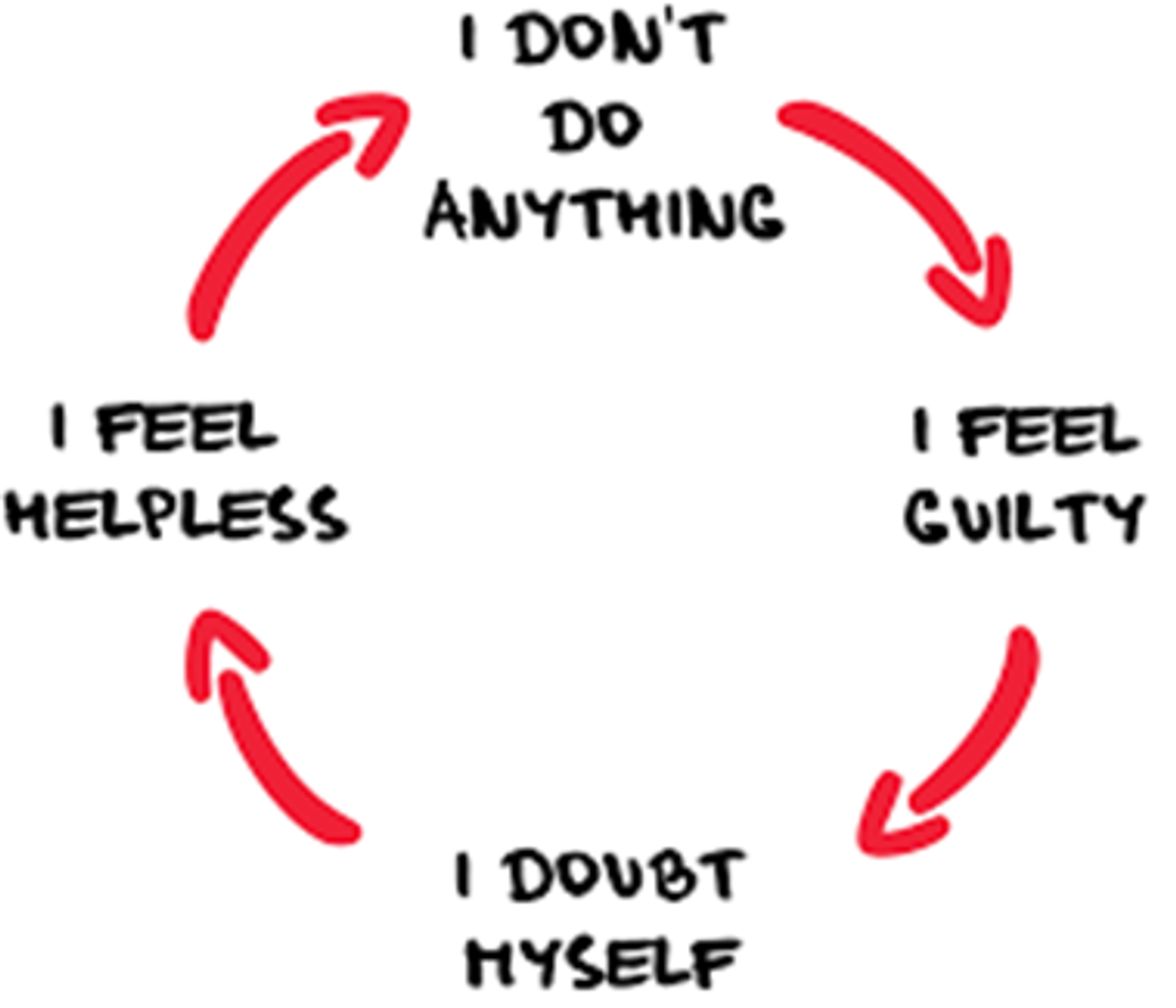COUNSELLING CONNECTIONS
News from College Counsellors
Br Roger Vallance fms & Mrs Marijke Keller

COUNSELLING CONNECTIONS
News from College Counsellors
Br Roger Vallance fms & Mrs Marijke Keller
Procrastination is the act of delaying or postponing a task or set of tasks. We have all practised procrastination at times, and some young people might make it an art form! Here are some helpful approaches if your young people are likely to procrastinate (and if your family is innocent of this, please let us know the formula because if we can bottle it, we can develop a great business).
It’s Sunday night… and once again your teen has waited until the last minute to start, and try to finish, a big project for class that’s due tomorrow morning. If situations such as this one – cramming for tests at the eleventh hour, always saying he will do something “later,” or similar scenarios – are commonplace in your household, your teen may be dealing with a procrastination problem.


But, there’s no reason for you to put off helping your teen.
What Causes Procrastination?
We often delay tasks when we don’t understand how long they will take.
Those who suffer from anxiety or perfectionistic tendencies often procrastinate as a means of coping with stress.
A simple lack of motivation to start a task and worrying about the consequences of inaction can lead to procrastination.
While these reasons for procrastination are by no means limited to teens and adolescents, procrastination is a behaviour that often begins in early adolescence.
Most parents of teens are all too aware of their teens’ increased attempts to achieve self-empowerment by resisting parental authority. And these efforts to resist parental authority take active (such as being argumentative) and passive (such as delaying an action) form. How many times has your teen said, “I’ll do it in a minute,” or “Just wait a sec!” for you to discover that these minutes and seconds are actually hours or days?
If your teen “gets away with” these delaying tactics, they can quickly learn that simply promising to do something “later” can be an effective strategy for not having to do something that he or she doesn’t want to do. Unfortunately, teen procrastination invariably leads to problems at work, school or home.


The Problems with Procrastination
There are two types of procrastination.
Resistant procrastination – Delaying a task until “later” – which often ends up being the last minute – but still finally getting the task done.
Refusal procrastination – Putting a task on “permanent hold” – pretending “later” will never come – and never completing the task.
The goal of procrastination may be to escape an immediate obligation, demand or need to work, but there’s a trap. Even if the task gets done in the end, procrastination adds to the stress and pressure of ordinary demands and causes them to take much longer than necessary.
In the worst-case scenario, teens and adolescents can get into what is known as “catastrophic functioning.” Catastrophic functioning is the use of delay and avoidance to create last-minute crises to motivate themselves to do whatever it is that must be done. In short, creating stress to enable accomplishment. And when catastrophic functioning becomes routine, discomfort, fatigue, burnout, even breakdown are likely to follow.
How You Can Help Your Teen
Parents often try to help teens overcome procrastination by using rewards and punishments. But, thanks to the underlying reasons behind procrastination that we’ve covered, these solutions rarely work as well as parents hope, leaving both teens and their parents confused and frustrated.
So, how can you help your teen to stop procrastinating, if that is something he or she wants to do?
1. Recognise the problem – The first step to helping your teen overcome procrastination is to recognise it. Pay attention to your child’s behaviours, especially when it comes to how they go about getting done what needs to be done. If your teen knows something needs doing but seems to avoid it altogether, they’re procrastinating. Does your teen feel guilty? Are they exhibiting any signs of anxiety, stress or depression? Procrastination can be a cause of and a crutch for dealing with all these feelings.
2. Help your teen practise time management – Help your teen prioritise his time so that it is as productive as possible, and include time for play. This may include helping them break down large or complex projects into manageable tasks, making use of a calendar or planner, and setting objectives and goals each night for the next day. This being said, you need to make sure the goals are clear and come from your teen. Teens need to take ownership of their goals and want to achieve them to get the work done and not procrastinate.
3. Look for personal difficulties – If helping your teen learn time management skills isn’t enough, there may be something else going on. For example, those suffering from anxiety or perfectionistic tendencies often procrastinate as a means of coping with stress. Peer pressure, low self-esteem, divorce, a death in the family, alcohol or drug abuse, ADHD, financial problems at home, and a whole host of other issues may result in your teen’s procrastination. If your child is experiencing anything or exhibits any personality traits that may underlie their procrastination, support them and help them overcome those things, including seeking the help of a teen counsellor or psychologist.
4. Help your teen find their motivation – Motivation comes easily when a person is doing something that’s important to them. And if your teen isn’t motivated to complete a task, procrastination is a likely outcome. This is the one place where rewards can be helpful. Work with your teen to create a reward that they want for completing a task.
5. Let your teen experience the consequence of procrastination – If all else fails, let your teen fail. Though it may be hard to do, allowing your teen to experience the negative outcomes of procrastinating may be the best way for them to learn a valuable lesson—and become more responsible.
Each time your teen prepares to procrastinates, get them to begin the task a little sooner than normal. Instead of fighting the habit, start a new one. Let him or her procrastinate, only slightly less than normal by moving up the starting time. As the old habit of procrastinating is slowly worn away, your teen will be able to practise better time management, be more productive, and experience less stress and more free time. And as they do, be sure to ask them how they feel and help them reflect on their newfound peace of mind.


Teen procrastination can be a vicious cycle and a difficult problem to solve. However, with persistence, patience and support, you can help your teen take ownership of both his or her successes and failures, overcome procrastination, and move forward into adulthood with self-confidence and optimism.
"Procrastination: A Scientific Guide on How to Stop Procrastinating” is a really helpful guide in easy steps to help parents understand the roots of procrastination and also to resolve its worst effects.
For your son and daughter, below is a useful graphic to pin to their study wall or in a visible space.


To contact Br Roger: email brroger@cns.catholic.edu.au or phone 07 4052 9135.
To contact Mrs Keller: email mkeller@cns.catholic.edu.au or phone 07 4052 9136.